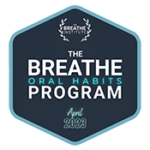Genetics is the scientific study of heredity, which basically, refers to how traits are passed on from parents to their children. For example, your eye color is a genetic trait passed on from your parents. Keeping this in mind, Mary Marazita, the director of the Center for Craniofacial and Dental Genetics states that approximately 60% of the risk of tooth decay is due to genetics.
Oral Hygiene
 We are not saying to forsake daily and proper oral hygiene, but we are saying that genes play a role in how healthy your gums will be and how resistant your teeth may be to tooth decay. A human gene, referred to as, “DEFB1” may be influential in the rate at which a person may be susceptible to cavities. Additionally, extensive research has found that higher than normal levels of the gene known as, “FAM5C” may increase your odds of developing gingivitis (gum disease).
We are not saying to forsake daily and proper oral hygiene, but we are saying that genes play a role in how healthy your gums will be and how resistant your teeth may be to tooth decay. A human gene, referred to as, “DEFB1” may be influential in the rate at which a person may be susceptible to cavities. Additionally, extensive research has found that higher than normal levels of the gene known as, “FAM5C” may increase your odds of developing gingivitis (gum disease).
Due to the variation in genes from person to person, some people may naturally have softer tooth enamel than other people. It is a known fact, that the softer the enamel on the tooth, the easier it is for bacteria to get in, which ultimately leads to cavities. Toothpaste with fluoride, in conjunction with daily flossing, can help teeth remain as clean as possible and avoid cavities. In addition, it is suggested that you speak to your dental professional, as to how to make tooth enamel more resistant to decay.
Taste preference can also be associated with genes. For instance, if you have a fondness for sweets; your risk for tooth decay will increase.
A quick family history of oral issues can determine if you are pre-dispositioned for certain conditions, such as cleft lip, tooth decay, misaligned teeth, gum disease, or possibly oral cancer.
Fear not! Because even you see a pattern of oral health issues associated with genetics, you are not helpless. The overall health of your gums and mouth are the result of a combination of oral care and genetics. Therefore, if just more than 50% is due to genetics, the other percentage is due to a combination of dietary habits, smoking habits, access to dental care (at least every six months), flossing, and brushing after every meal.
Genetics will play a slight role in how healthy your gums and teeth will be today and throughout your life. However, no matter what your genes may say, with a proper dental plan, including regular checkups and professional cleanings, you can have healthy teeth and gums. Remember, even if you have bad genes, you are in ultimate control of your oral care destiny.
Genetics is the scientific study of heredity, which basically, refers to how traits are passed on from parents to their children. For example, your eye color is a genetic trait passed on from your parents. Keeping this in mind, Mary Marazita, the director of the Center for Craniofacial and Dental Genetics states that approximately 60% of the risk of tooth decay is due to genetics.
Dental Hygiene
We are not saying to forsake daily and proper oral hygiene, but we are saying that genes play a role in how healthy your gums will be and how resistant your teeth may be to tooth decay. A human gene, referred to as, “DEFB1” may be influential in the rate at which a person may be susceptible to cavities. Additionally, extensive research has found that higher than normal levels of the gene known as, “FAM5C” may increase your odds of developing gingivitis (gum disease).
Due to the variation in genes from person to person, some people may naturally have softer tooth enamel than other people. It is a known fact, that the softer the enamel on the tooth, the easier it is for bacteria to get in, which ultimately leads to cavities. Toothpaste with fluoride, in conjunction with daily flossing, can help teeth remain as clean as possible and avoid cavities. In addition, it is suggested that you speak to your dental professional, as to how to make tooth enamel more resistant to decay.
Taste preference can also be associated with genes. For instance, if you have a fondness for sweets; your risk for tooth decay will increase.
A quick family history of oral issues can determine if you are pre-dispositioned for certain conditions, such as cleft lip, tooth decay, misaligned teeth, gum disease, or possibly oral cancer.
Fear not! Because even you see a pattern of oral health issues associated with genetics, you are not helpless. The overall health of your gums and mouth are the result of a combination of oral care and genetics. Therefore, if just more than 50% is due to genetics, the other percentage is due to a combination of dietary habits, smoking habits, access to dental care (at least every six months), flossing, and brushing after every meal.
Genetics will play a slight role in how healthy your gums and teeth will be today and throughout your life. However, no matter what your genes may say, with a proper dental plan, including regular checkups and professional cleanings, you can have healthy teeth and gums. Remember, even if you have bad genes, you are in ultimate control of your oral care destiny.










